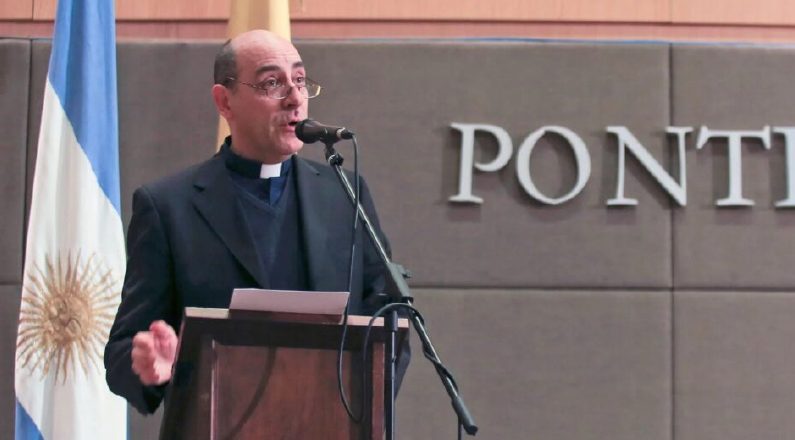
Trump Blames FAA Diversity Hiring Following Crash—Without Evidence Forbes
source

Next up in 5
Example video title will go here for this video
Next up in 5
Example video title will go here for this video
GEYSERVILLE, Calif. — Every day at noon, three tiny bells ring in Sonoma County’s Wine Country, and every day, people visiting the little town of Geyserville are welcomed inside a temple covered in hieroglyphics, at Isis Oasis Sanctuary. The lush 10-acre property is spiritual retreat inspired by an ancient Egyptian goddess.
“Isis is like the supreme goddess of ancient Egypt and, of course, you know, she’s had that name for millennia at this point. It’s not to be confused with any other ISIS, organizations,” sanctuary director de Traci Regula said.
The goddess Isis is a figure of many things, including healing, peace, celebration, and motherhood.
“Our foundress Loreon Vigné felt that, you know, the male side of spirituality had gotten plenty of attention,” Regula said.
Isis Oasis was founded in 1978 by the late Loreon Vigné, a Bay Area art shop owner who catered to Beat Generation poets from the 1950s and ’60s.
“She was an artist, a visionary, a priestess, a writer and a businesswoman. And all of these things combined to create what she considered a grand art project of Isis Oasis Sanctuary,” said Regula.
TAKE A TRIP ON BARTELL’S BACKROADS:
► Binge the Backroads with the ABC10+ streaming app for your TV
► See an interactive map of everywhere John has visited on the backroads
► Watch all of the Backroads videos on your phone
► Follow John on Facebook
Temple of Isis was formally recognized as a church in the state of California in 1996. De Traci said the property has been a magnet for musicians like the Grateful Dead and the former home of activist Dennis Perron.
“He is known as the Father of Medical Marijuana legislation, and he was the executive assistant to Harvey Milk,” Regula said.
Isis Oasis also welcomes overnight guests in their grand lodge. Each room is uniquely decorated with the theme of different goddesses. If you are looking to start a family, the Isis room might be what you are looking for.
“Supposedly, we’ve had a number of guests who have conceived in this room, and we actually get people who request this room specifically because they are trying to have a baby,” Regula said.
If you are looking to get in touch with nature, take a short walk up to the earthen fairy houses. The rooms are cozy and near a series of exotic bird cages and animal pens. Isis Oasis is not just a sanctuary for people but for unwanted or neglected animals as well.
There are more than 70 animals on the property. Regula said Isis Oasis founder Loreon Vigné loved animals and even helped care for endangered felines.
“She was also considered to be the one of the first, if not the first person to successfully breed ocelots in the United States,” Regula said.
Isis Oasis Sanctuary is a place for peace, art and exploring. A place that welcomes all to experience the property in their own way.
ANOTHER SPIRITUAL CENTER ON THE BACKROADS: The Sea Ranch Chapel was built by a team of artists as a place for curious travelers to discover, reflect and spiritually reconnect.

ChainCatcher news, the Tensor Foundation announced on social media that the Season 4 airdrop rewards are now open for claims.
A total of 4% of the TNSR supply is rewarded to active users of Tensor Protocols in S4. Nearly 50,000 wallets are eligible for S4 rewards. Users who claim in the VECTOR application will also receive an additional 25% TNSR reward.

Mission
Monsignor Victor Manuel Fernández, Prefect of the Dicastery of Faith Photo: ADN Celam
Vatican Seeks to Define ‘Spiritual Abuse’ in Canon Law
(ZENIT News / Rome, 01.31.2025).- The Vatican’s Dicastery for the Doctrine of the Faith is moving to address a troubling gap in Canon Law: the lack of explicit provisions against «spiritual manipulation and abuse of power» used in cases of sexual coercion.
In an interview with the Spanish Catholic newspaper Alfa y Omega, Cardinal Víctor Manuel Fernández, the prefect of the dicastery, acknowledged the urgent need for a clearer legal definition of spiritual abuse—a phenomenon that, he admitted, is not uncommon within the Church.
“We have frequently received reports of situations where spiritual elements are misused as a pretext for sexual relationships,” Cardinal Fernández stated. “It involves the manipulation of both the people who entrust themselves to a spiritual guide and the beauty of our faith itself, distorted for personal gain.”
A Issue in Need of Legal Reform
At present, the only applicable provision in Canon Law is Canon 1399, a general clause allowing for punishment of offenses not explicitly defined in Church law when the gravity of the violation demands it. However, Cardinal Fernández argues that relying on such a broad law is insufficient when a crime becomes widespread.
“When a serious offense is frequently committed, it is not advisable to depend on such a general canon, especially when imposing severe penalties,” he said.
To address this, the Vatican announced in November 2024 that Pope Francis had authorized the formation of a working group in collaboration with the Dicastery for Legislative Texts. This group, led by Archbishop Filippo Iannone, will explore ways to define spiritual abuse within Canon Law and establish clear guidelines for prosecution and punishment.
The Challenge of Defining Spiritual Abuse
One of the complexities in drafting new legislation is establishing precise definitions that distinguish serious offenses from less severe forms of misconduct. Cardinal Fernández warned that a vague definition could lead to overreach, fostering an environment of excessive suspicion or a “cancel culture” within the Church.
“If everything is treated with the same level of severity, we risk failing to properly punish the gravest cases while simultaneously creating unnecessary fear,” he explained.
Among the most egregious cases, he emphasized, are instances where clerics justify sexual acts under the guise of deepening a person’s relationship with God—sometimes even in sacred spaces. He stated that such acts should warrant the highest penalties possible under Canon Law.
Rupnik Scandal and the Push for Reform
The Vatican’s renewed attention to spiritual abuse follows the highly publicized case of ex-Jesuit priest and artist Marko Rupnik, who was accused of spiritual and sexual abuse spanning decades. Rupnik allegedly manipulated female victims into engaging in sexual acts under the pretense of religious devotion. His case, currently under Vatican investigation, highlighted the Church’s inadequate legal tools for handling such offenses.
However, Cardinal Fernández clarified that the working group’s proposals are not solely a reaction to the Rupnik case but part of a broader effort to ensure justice and prevent future abuses.
“If we tailor laws around a single case, we compromise the objectivity of the work,” he said.
A Step Toward Accountability
One of the group’s key tasks will be to determine whether a completely new category of crime should be introduced into Canon Law or if existing laws should be amended to explicitly include spiritual abuse. Currently, cases are often categorized under “false mysticism”, a term that can also apply to theological errors rather than criminal offenses.
Fernández emphasized that precision in legal terminology is crucial to ensuring justice.
“Canonists need a clear legal definition—perhaps ‘spiritual abuse’—so that we are not always forced to use Canon 1399, which is too broad, or rely on ambiguous terms like ‘false mysticism,’ which can lead to confusion.”
What Comes Next?
The Vatican’s legal experts are now working on concrete legislative proposals, which could lead to new provisions in Canon Law within the coming years. If approved, the reforms would mark a historic shift in the Church’s handling of spiritual abuse, reinforcing its commitment to protecting the faithful from clerical manipulation and coercion.
Thank you for reading our content. If you would like to receive ZENIT’s daily e-mail news, you can subscribe for free through this link.
View all articles
If you liked this article, support ZENIT now with a donation
Pope’s General Audience, January 29, 2025 on the annunciation to Joseph
A Mission of Unity: Cardinal Gugerotti’s Journey to Syria as Pope Francis’ Envoy

Education and Poverty C-SPAN
source

Months of talks have resulted in a five-party coalition agreement to be led by the right-wing N-VA party’s Bart De Wever. He is now set to become the country’s first nationalist prime minister.
Political parties in Belgium struck a deal on Friday to form a broad coalition government.
The announcement concluded months of talks that followed federal elections in June last year.
The country’s new prime minister is set to be the right-wing New Flemish Alliance (N-VA) leader Bart De Wever, who secured victory in the June polls.
De Wever will lead a five-party coalition which includes the Christian Democrats, the liberal Reformist Movement and the Flemish Social Democrats.
Together, they hold an 81-seat majority in Belgium’s 150-seat parliament.
The far-right Vlaams Belang (Flemish Interest) party was excluded from the government talks, despite the anti-immigration party having made the largest gains in the June 2024 election.
Political parties consistently exclude Vlaams Belang due to its anti-immigrant and anti-EU stance as well as its aim to split up the country.
Belgium’s Royal Palace released a statement saying that De Wever had reported the agreement of the future coalition to the king.
“His mandate has been extended until the appointment of the new government. The date of the swearing-in will be announced later,” the palace said in a post on social media.
This will be the first time Belgium will have a nationalist in the position of prime minister. The mayor of Antwerp since 2013, De Wever had pushed for cuts in social benefits, reforms to the pension system and immigration curbs.
“The die is cast,” De Wever said on social media, adding a picture of him meeting the king at the palace.
kb/zc (Reuters, dpa, AFP)